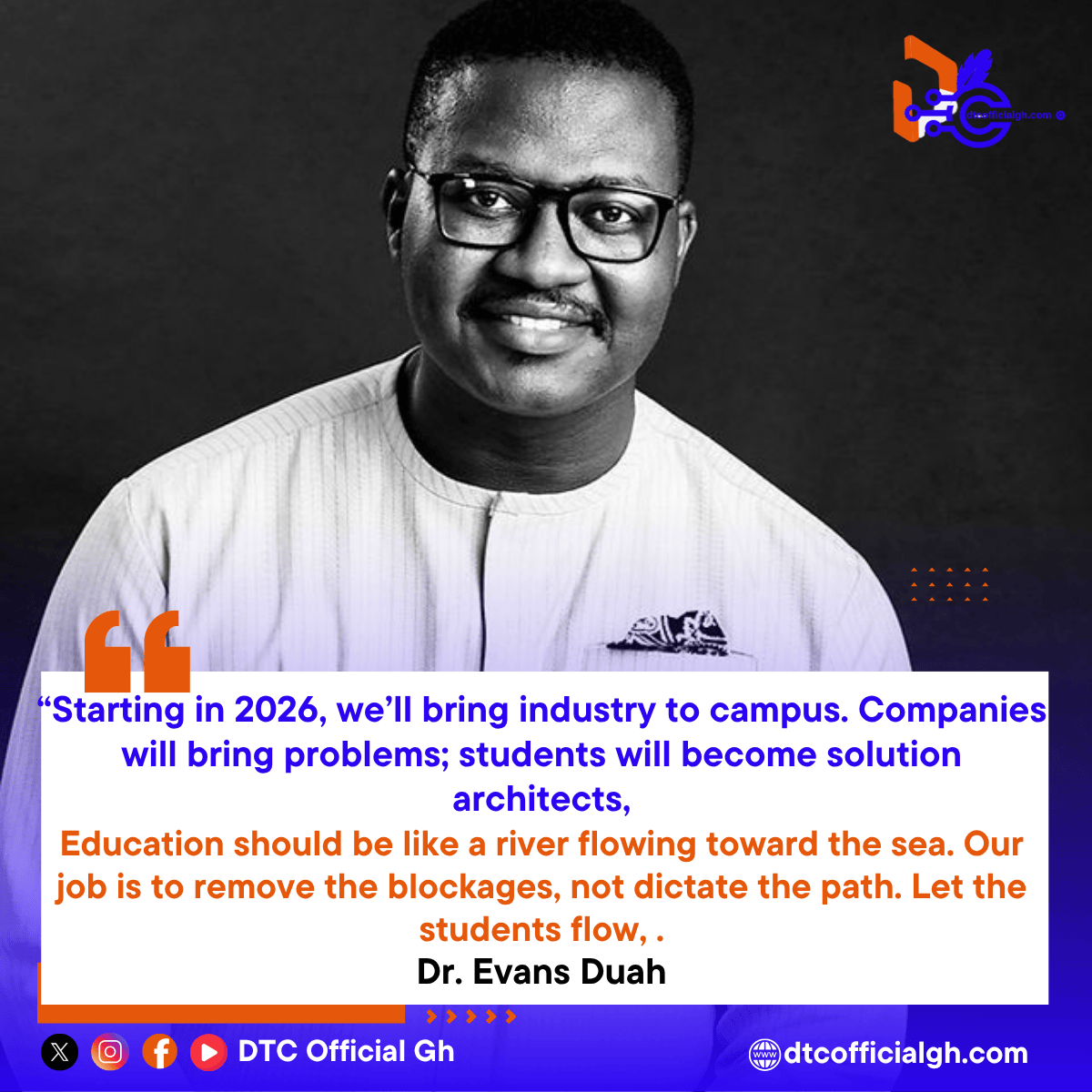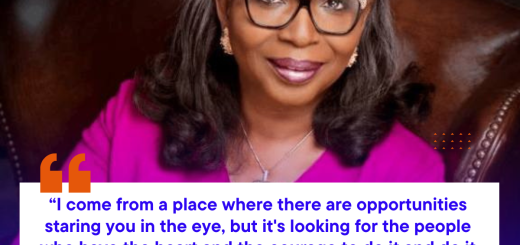How One Man is Rewriting the Future of Education and Entrepreneurship in Africa

When a former investment banker swaps spreadsheets for lecture halls and Wall Street hustle for West African classrooms, something extraordinary is brewing.
In a recent episode of Africa Connect, host Kafuti Talahumbu sits down with Dr. Evans Duah, an academic force reshaping Ghana’s higher education and entrepreneurial ecosystem. What began as a personal journey from France to Chicago’s Kellogg School of Management through the prestigious Mandela Washington Fellowship has evolved into a national blueprint for education, innovation, and economic empowerment.

And it’s not just about classrooms anymore. It’s about ecosystems.
“Whether you’re studying nursing, cybersecurity, or mathematics, you’re doing entrepreneurship,” Dr. Duah explains. “We’ve embedded it at every level.”
READ ALSO: 5 Habits That Quietly Keep You Poor (And Most People Don’t Even Realize It)
At the heart of Dr. Duah’s mission is a simple but revolutionary idea: education should be a launchpad, not a finish line. With a mandate from the Ghanaian government, his institution has grown from 8,000 students in 2021 to over 32,000 students in just a few years. But it’s not just the scale that’s impressive, it’s the model.
Demand-Driven, Not Tradition-Bound
Rather than cling to legacy curricula, Dr. Duah’s team conducted a national needs assessment and boldly scrapped programs with no market demand. In their place? New, in-demand courses like cybersecurity, mechanical systems, and innovation management, fields that are powering the fourth industrial revolution.
What makes the model unique is the marriage between academia and industry. From capstone projects with real companies to practical simulations and consultant-style student engagements, the university is embedding real-world problem-solving into every semester.
“Starting in 2026, we’ll bring industry to campus. Companies will bring problems; students will become solution architects,” he says.
READ ALSO: Black Excellence, Brain Drain, and Building Africa’s Future: A Conversation with Dr. Charles Bennin
Funding with Foresight: A Scalable Approach
Scaling a university from 8,000 to 30,000+ students isn’t just a pedagogical challenge; it’s a financial one. Dr. Duah’s multi-pronged resource strategy is a masterclass in financial ingenuity:
- Government payroll realignment: By shifting staff salaries to government payrolls, internally generated funds (IGF) are freed up for campus development.
- Grant hunting with star power: With globally ranked professors on staff, his university is now writing and winning major research and development grants.
- Corporate partnerships: From German development agencies like GIZ to private sector sponsors, the institution is courting partners to adopt and support specialized centers.
- Endowment-building efforts: Taking a cue from U.S. institutions like Harvard, Dr. Duah is advocating for long-term endowment strategies and policy frameworks to institutionalize sustainability.
For more insights and inspiring stories , kindly follow us on Twitter and WhatsApp for more.
A New Type of Exchange: Brain Gain, Not Brain Drain
Dr. Duah passionately champions international exposure as an asset, not a threat. As someone who has lived in French, Arabic, British, and U.S. systems, he sees global education not as an escape, but as a boomerang for transformation.
“Even if they stay abroad for 20 years but come back to lead high-impact projects for five, it’s worth it.”
To facilitate this, they run free annual training for final-year students, helping them polish resumes, craft scholarship essays, and find programs aligned with their long-term goals. From Ghana to Johns Hopkins, he has helped over 50 students annually secure admissions and scholarships abroad.
And their reach is expanding through platforms like EducationUSA, American Corners, and partnerships with embassies. His consultancy even offers privately funded scholarships.
READ ALSO: Profile Of The Month: Oscar Bimpong — The Mindset Revolutionist
Data, Diplomacy, and the Future of U.S.-Africa Collaboration
One of the most compelling parts of this conversation is Dr. Duah’s vision for U.S.-Africa collaboration.
“The U.S. wants data to maintain soft power. African universities have that data. Why not partner directly with us?”
From advising the World Bank-funded ENO Global in Europe to developing dual-degree programs with U.S. universities, Dr. Duah is positioning African universities not just as beneficiaries of aid, but as equal partners in global research, innovation, and talent development.
For more insights and inspiring stories , kindly follow us on Twitter and WhatsApp for more.
He advocates for shared learning models, cross-faculty programs, and direct U.S.-Africa institutional relationships. For him, Fulbright and Mandela Washington Fellows can be the catalysts of a new era of academic diplomacy.
His Final Advice for African Universities?
“Education should be like a river flowing toward the sea. Our job is to remove the blockages, not dictate the path. Let the students flow, create hubs, connect them to opportunities, and amplify their wins.”
And that is precisely what Dr. Duah is doing, clearing the path for the next generation of African innovators, one student at a time.
Also from Dr. Duah: 𝟮𝟱 𝗟𝗲𝘀𝘀𝗼𝗻𝘀 𝗟𝗶𝗳𝗲 𝗪𝗶𝗹𝗹 𝗧𝗲𝗮𝗰𝗵 𝗬𝗼𝘂 – 𝗟𝗲𝗮𝗿𝗻 𝗧𝗵𝗲𝗺 𝗘𝗮𝗿𝗹𝘆!
🎥 Watch the full interview here:




3 Responses
[…] READ ALSO: How One Man is Rewriting the Future of Education and Entrepreneurship in Africa […]
[…] READ ALSO: How One Man is Rewriting the Future of Education and Entrepreneurship in Africa […]
[…] READ ALSO: How One Man is Rewriting the Future of Education and Entrepreneurship in Africa […]